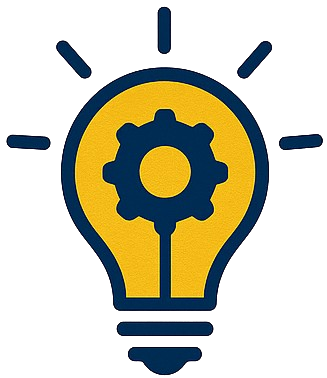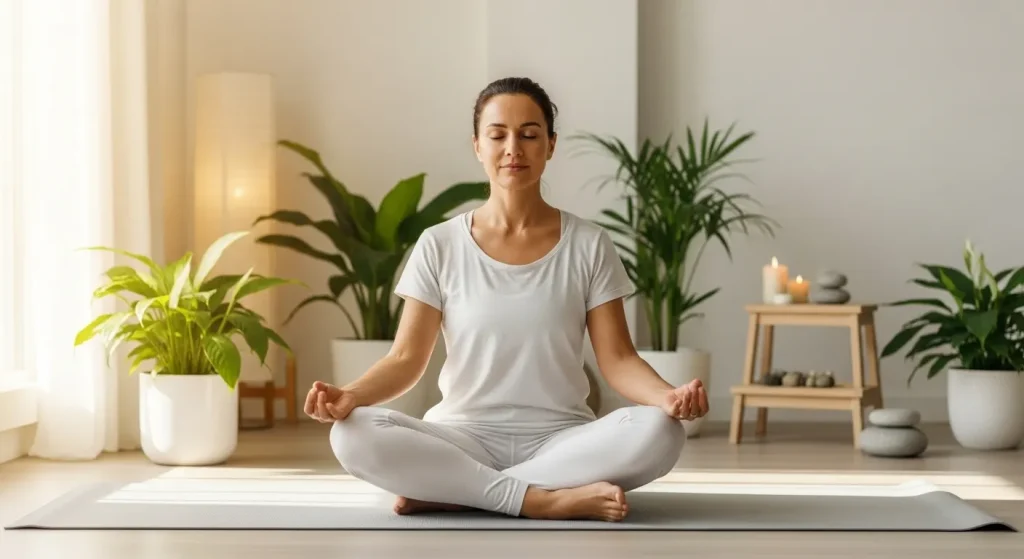Mental health challenges are more prevalent than ever, with millions seeking effective ways to manage stress, anxiety, and depression. Fortunately, mindfulness has emerged as a powerful, scientifically-backed approach that transforms mental wellbeing through simple yet profound practices. This comprehensive guide explores how mindfulness and mental health intersect to create lasting positive change in your daily life.
Ultimate Guide to Home Workout Routines: Build Strength at Home
What is Mindfulness and How Does it Impact Mental Health?
Mindfulness is the practice of purposefully paying attention to the present moment without judgment. Research shows that “for many chronic illnesses, mindfulness meditation seems to improve quality of life and reduce mental health symptoms,” according to Harvard University researchers. This ancient practice, now validated by modern neuroscience, offers a practical pathway to better mental health.
The connection between mindfulness and mental health operates through several mechanisms:
- Reduced rumination – Breaking the cycle of negative thought patterns
- Enhanced emotional regulation – Better control over emotional responses
- Decreased stress hormones – Lower cortisol and adrenaline production
- Improved attention span – Stronger focus and concentration abilities
- Increased self-awareness – Better understanding of thoughts and feelings
Science-Backed Mental Health Benefits of Mindfulness
Modern research has extensively documented the mental health benefits of mindfulness meditation. Studies show mindfulness increases productivity and focus by 120% while reducing absenteeism by 85%, demonstrating its powerful impact on overall wellbeing.
Depression and Anxiety Relief
Mindfulness-based interventions have shown remarkable success in treating depression and anxiety disorders. Meditation helps address various mental problems like social anxiety disorder, post-traumatic stress disorder (PTSD), anxiety, and depression by promoting positive emotional states and reducing negative thought patterns.
Key benefits include:
- 43% reduction in anxiety symptoms after 8 weeks of practice
- 58% decrease in depression scores among regular practitioners
- Improved emotional stability during stressful situations
- Enhanced resilience against future mental health challenges
Top Online Courses to Boost Your Career in 2025
Stress Management and Cortisol Reduction
Chronic stress wreaks havoc on mental health, but mindfulness offers effective stress relief through measurable physiological changes. Regular mindfulness practice:
- Lowers cortisol levels by up to 25% within 8 weeks
- Reduces inflammatory markers associated with stress-related illness
- Improves sleep quality by calming the nervous system
- Enhances immune function through stress hormone regulation
Enhanced Cognitive Function
Mindfulness doesn’t just improve emotional wellbeing; it also boosts cognitive performance critical for mental health:
- Working memory improvement – Better information processing and retention
- Attention regulation – Reduced mind-wandering and improved focus
- Executive function enhancement – Stronger decision-making abilities
- Creativity boost – Increased innovative thinking and problem-solving
Essential Mindfulness Techniques for Mental Health
Incorporating mindfulness into your mental health routine doesn’t require hours of meditation. These evidence-based techniques can be practiced anywhere, making mental wellbeing accessible to everyone.
Mindful Breathing for Anxiety Relief
Conscious breathing is the foundation of mindfulness practice and provides immediate anxiety relief. This technique activates the parasympathetic nervous system, promoting calm and reducing stress hormones.
4-7-8 Breathing Technique:
- Inhale through your nose for 4 counts
- Hold your breath for 7 counts
- Exhale completely through your mouth for 8 counts
- Repeat 3-4 cycles during moments of anxiety
Body Scan Meditation for Stress Relief
Body scan meditation systematically releases physical tension while improving mind-body awareness. This practice is particularly effective for those carrying stress in their muscles and joints.
Progressive Body Scan Steps:
- Start at the top of your head, noticing any sensations
- Slowly move attention down through each body part
- Acknowledge tension without trying to change it
- Breathe into areas of tightness or discomfort
- Complete the scan from head to toes over 15-20 minutes
Mastering Virtual Interviews: Tech and Etiquette Tips
Mindful Walking for Mental Clarity
Walking meditation combines physical movement with mindfulness, making it perfect for those who struggle with seated meditation. This practice improves mental health while providing gentle exercise benefits.
Mindful Walking Practice:
- Choose a quiet 10-20 foot path
- Walk slower than normal, focusing on each step
- Notice the lifting, moving, and placing of each foot
- When your mind wanders, gently return attention to walking
- Practice for 10-15 minutes daily
Creating a Daily Mindfulness Routine for Better Mental Health
Consistency is key when using mindfulness for mental health improvement. A structured daily practice ensures you receive maximum benefits while building sustainable habits.
Morning Mindfulness Ritual (10-15 minutes)
Starting your day with mindfulness sets a positive tone and builds resilience against daily stressors:
5:00-5:05 AM: Mindful Awakening
- Remain in bed for 5 minutes after waking
- Notice your breath and body sensations
- Set an intention for the day
5:05-5:15 AM: Meditation Practice
- Choose guided meditation or silent sitting
- Focus on breath awareness or loving-kindness
- Use apps like Headspace or Calm for structure
Simple Office Desk Stretches to Stay Active at Work
Midday Mental Health Check-in (5 minutes)
A brief midday practice prevents stress accumulation and maintains emotional balance:
- Mindful eating during lunch breaks
- Three conscious breaths before meetings
- Gratitude reflection listing three positive aspects of your day
- Brief body scan to release physical tension
Evening Stress Relief Routine (10-20 minutes)
End your day by processing experiences and preparing for restful sleep:
| Time | Activity | Mental Health Benefit |
|---|---|---|
| 8:00-8:10 PM | Journaling practice | Emotional processing |
| 8:10-8:20 PM | Gentle yoga or stretching | Physical tension release |
| 8:20-8:30 PM | Meditation or breathing | Nervous system calming |
| Before bed | Gratitude practice | Positive mindset cultivation |
Quick Home Workout Routines for Busy Professionals
Mindfulness Apps and Resources for Mental Health
Technology can support your mindfulness journey, offering guided practices and progress tracking to enhance mental health outcomes.
Top-Rated Mindfulness Apps
Headspace – Beginner-friendly with structured programs for anxiety, sleep, and focus Calm – Excellent for sleep stories and nature sounds for relaxation
Insight Timer – Free option with thousands of guided meditations Ten Percent Happier – Evidence-based approach with expert teachers Waking Up – Advanced practices for experienced meditators
Additional Mental Health Resources
- Mindfulness-Based Stress Reduction (MBSR) programs in your area
- Online courses through universities and meditation centers
- Books on mindfulness by Jon Kabat-Zinn, Thich Nhat Hanh, and Tara Brach
- Local meditation groups for community support and accountability
Overcoming Common Mindfulness Challenges
Many people encounter obstacles when beginning mindfulness practice for mental health improvement. Understanding these challenges helps maintain motivation and consistency.
“My Mind Won’t Stop Racing”
Racing thoughts are normal, especially for those with anxiety or depression. The goal isn’t to stop thinking but to notice thoughts without getting caught in them.
Solutions:
- Acknowledge that busy minds are normal
- Use guided meditations initially for structure
- Try walking meditation if sitting feels too difficult
- Remember that noticing mind-wandering IS mindfulness
How to Secure Your Home Wi-Fi Network: Complete Guide
“I Don’t Have Time for Meditation”
Time constraints are common barriers, but mindfulness can be integrated into existing activities without adding schedule pressure.
Time-Saving Strategies:
- Practice mindful daily activities (brushing teeth, showering)
- Use commute time for breathing exercises
- Take mindful breaks during work transitions
- Start with just 3-5 minutes daily
“I’m Not Seeing Results Fast Enough”
Mental health improvements from mindfulness often occur gradually, and expecting immediate results can create frustration.
Patience-Building Tips:
- Keep a practice journal to track subtle changes
- Focus on the process rather than outcomes
- Celebrate small victories and consistency
- Remember that benefits compound over time
Integrating Mindfulness with Professional Mental Health Care
While mindfulness offers powerful mental health benefits, it works best as part of a comprehensive approach that may include professional therapy and medical care.
When to Seek Additional Support
Mindfulness is highly beneficial but shouldn’t replace professional help for serious mental health conditions:
- Persistent depression lasting more than two weeks
- Severe anxiety interfering with daily functioning
- Trauma symptoms requiring specialized treatment
- Substance abuse issues needing medical intervention
- Suicidal thoughts requiring immediate professional help
Complementary Approaches
Mindfulness enhances other mental health treatments:
Cognitive Behavioral Therapy (CBT) – Mindfulness supports awareness of thought patterns Medication management – Meditation can reduce side effects and improve compliance Talk therapy – Mindfulness enhances emotional processing and self-insight Support groups – Meditation builds the emotional regulation needed for group participation
Wearable Health Trackers for Daily Wellness
The Future of Mindfulness in Mental Health Care
The mindfulness landscape is transforming through technology, social change, and evolving human needs, making these practices more accessible and effective for mental health improvement.
Emerging trends include:
- VR meditation experiences providing immersive environments
- AI-powered personalized programs adapting to individual needs
- Workplace mindfulness initiatives supporting employee mental health
- Integration with healthcare systems for preventive mental health care
- Youth mindfulness programs building resilience from early ages
Frequently Asked Questions
How quickly can mindfulness improve mental health symptoms?
Many people notice initial mental health improvements from mindfulness within 2-3 weeks of consistent practice. However, significant changes in anxiety, depression, and stress typically occur after 8-12 weeks of regular meditation. Research shows that even brief mindfulness sessions can provide immediate stress relief and emotional regulation benefits. The key is consistency rather than duration – practicing 10 minutes daily is more beneficial than occasional longer sessions for sustained mental health improvement.
Can mindfulness replace therapy or medication for mental health conditions?
While mindfulness offers powerful mental health benefits, it’s most effective as a complementary approach rather than a replacement for professional treatment. For mild to moderate anxiety and stress, mindfulness meditation may be sufficient as a standalone intervention. However, severe depression, anxiety disorders, trauma, or other serious mental health conditions typically require professional therapy, medication, or both. Mindfulness enhances traditional treatments by improving emotional regulation, stress management, and self-awareness, making other interventions more effective.
What’s the difference between mindfulness and regular meditation for mental health?
Mindfulness is a specific type of meditation focused on present-moment awareness without judgment, making it particularly effective for mental health applications. While traditional meditation often involves concentration techniques or spiritual practices, mindfulness emphasizes observing thoughts and emotions as they arise without getting caught up in them. This approach directly addresses common mental health challenges like rumination, anxiety, and emotional reactivity. Mindfulness-based interventions have extensive research supporting their mental health benefits, while other meditation forms may focus more on spiritual or concentration-based outcomes.
Immune-Boosting Nutrition Trends
Transform Your Mental Health Through Mindfulness Today
The relationship between mindfulness and mental health offers hope for anyone struggling with stress, anxiety, or emotional challenges. By incorporating these evidence-based practices into your daily routine, you’re investing in long-term mental wellbeing that compounds over time.
Start your mindfulness journey with professional guidance and structured programs designed specifically for mental health improvement.
- Meditation Cushion/Zabuton Set
- Essential Oil Diffuser with Lavender/Chamomile Oils
- Weighted Blanket (15-20 lbs)
- Mindfulness Journal/Gratitude Diary
- Tibetan Singing Bowl Set
to access premium mindfulness courses, guided meditations, and personalized mental health support that accelerates your progress toward inner peace and emotional resilience.
Remember: every moment of mindfulness is a step toward better mental health. Your future self will thank you for starting today.










